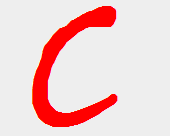Today I came to know an interesting case of Date object in JavaScript, I decided to share with my readers. DateTime object is always problematic for developers, specially in Web project where you need to handle different time zones.
JavaScript has the core class of Date, which has many useful date function. As JavaScript is client-side language and it runs on clients browser so it creates the Date object of clients local time-zone, so you don't need to handle localization for client but when you get this value on server than you need to change it to UTC (or as per business requirements). You can easily create current date-time object using:
var dateTimeNow = new Date();or you can pass the date fields to constructor:
var dateTime = new Date(year, month, day, hours, minutes, seconds, milliseconds);Date class has many useful and handy function which allow you to manipulate Date object and perform different operations. You can get day, month, year, hour from date object or you can convert it to UTC date object. Similarly you can change day, month, year or time of an object.
var dt = new Date(); dt.setFullYear(2014); dt.setMonth(9); dt.setDate(11);One important thing in JavaScript Date object every developer should know is its month start from zero so:
dt.setMonth(0); //set January dt.setMonth(1); //set February dt.setMonth(2); //set march dt.setMonth(3); //set April dt.setMonth(4); //set May dt.setMonth(5); //set June
So What will happen if you set 12 to this date object?
If you are thinking it will give you an error then you are wrong because it won't. What actually JavaScript date object will do is it will consider January of next year on setting the 12. So it sometime may cause error or unexpected result which might confuse developer if they are unaware of behavior.
var dt = new Date(); dt.setFullYear(2014); dt.setMonth(12); dt.setDate(1); alert(dt.toString()) //alert January 2015Here is Demo
The inconsistent and confusing behavior I found for which I am writing this article is, setting Date to a date object.
If you set last date to a JavaScript date object in such a way that that date i.e, 31st for April, June, September, November or 30th ,31st for February. It will change the month.
For instance today is 20th of April 2014, and you coded to set 31st of October in way that you set the date first before changing month, Now if you are expecting Date object of 31st October than JavaScript is not your friend here as it will change the date object to October 1st 2014.
See code:
var dt = new Date(2014,3,20); // 20th April 2014 dt.setDate(31); //will change to 1st of May dt.setMonth(9); //1st October 2014 alert(dt.toString()) //alert 1st October 2014Here is Demo
See it can be problematic and can cause a major defects if you ignored it. So always remember the following point in JavaScript Date object:
- If you are setting day of month than make sure to change month first than day.
- Remember month in JavaScript range from 0 to 11 (Jan - Dec)
- Be alert that JavaScript don't give error on setting month or date out from normal range.

It's supposed to work that way. You are describing the explicitly intended functionality.
ReplyDelete